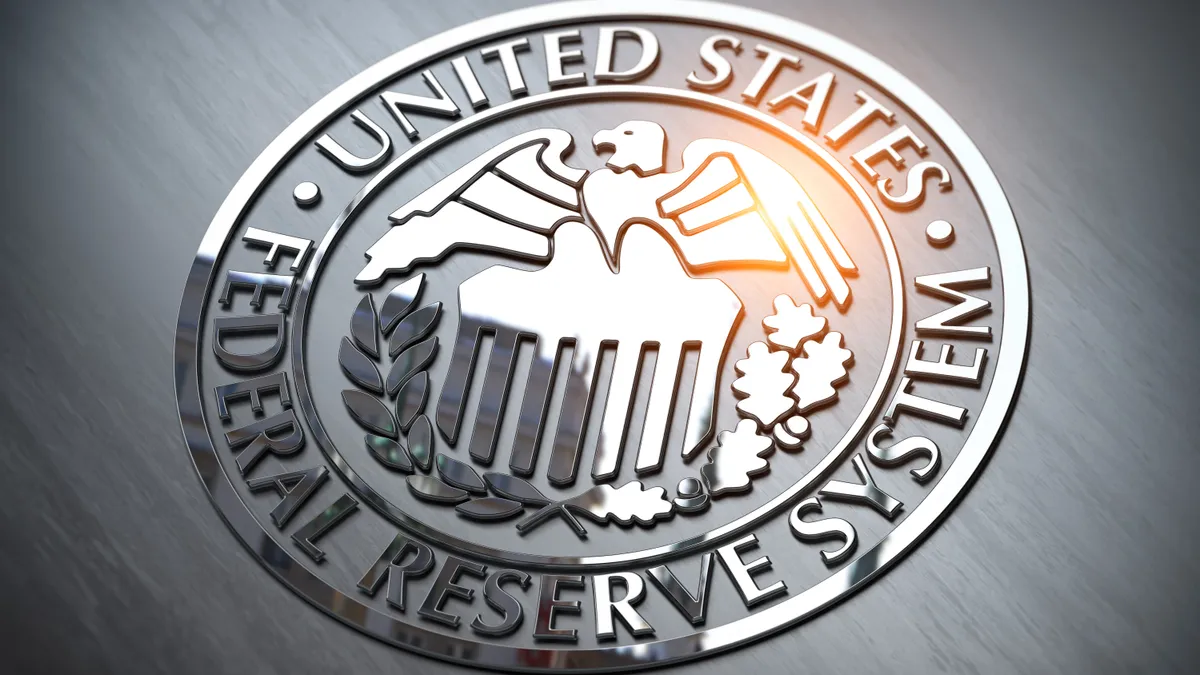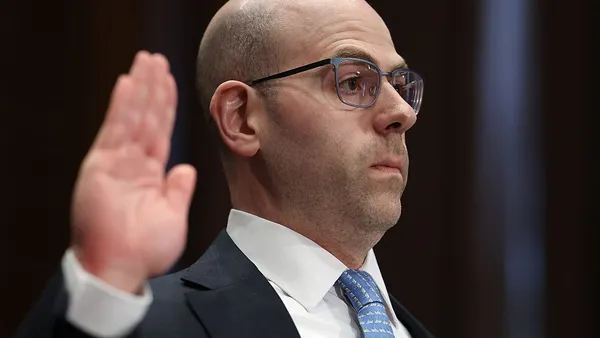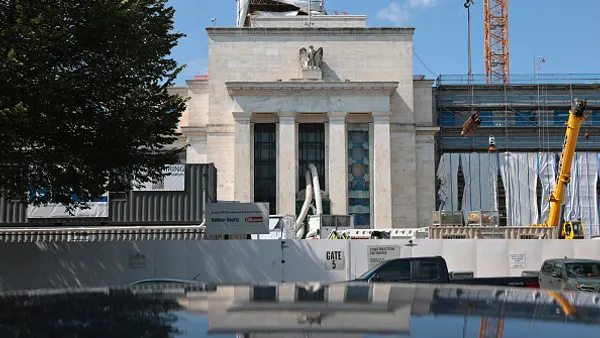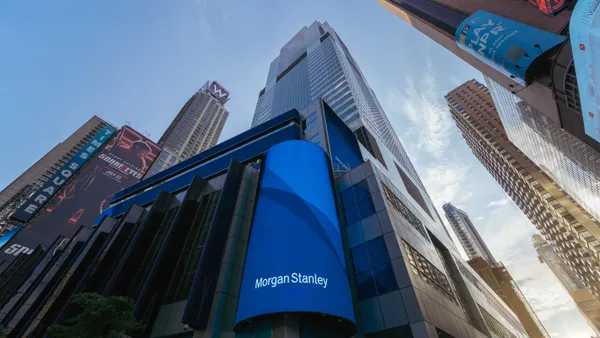Silicon Valley Bank’s failure stemmed from regulators acting too slowly after identifying issues within the bank, San Francisco Fed President Mary Daly said Monday at the Brookings Institution.
Daly emphasized that although bank supervisors in her district share the blame for failing to act after detecting red flags, supervision is an extensive activity directed by the Federal Reserve’s board of governors, not the central bank’s regional outposts.
"Supervision is a system-wide activity, but different parts of the system have different roles and responsibilities,” she said. “While many of us do not own the decision — those rest solely with the Board of Governors or Michael Barr, the vice chair [for supervision] — we all own the outcomes. And so, when the outcomes aren't what we want them to be, we all work collectively to make them better going forward.”
The San Francisco Fed was responsible for monitoring SVB — the failure of which spurred a review of policies regarding the safety of the banking sector and highlighted regulators’ shortcomings in identifying underlying weakness within the bank.
Barr’s post-mortem report on what led to the second-largest bank failure in American history pointed to an excessive “deliberative” process that warranted bank regulators to take action after absolute certainty.
“The deliberative nature of things, which is another piece of language to say that there’s slowness between when things are spotted and when their enforcement actions or other things are taken and that pipeline of speed is not very speedy at any juncture,” Daly said. “That's not just a San Francisco thing or a Board of Governors thing; that is a way you can improve the supervisory process.
“You don’t have to be absolutely sure because we are capable people; we can raise this [issue],” Daly added. “The bias has to be to raise issues as opposed to waiting until you have every shred of evidence, so that's a lesson.”
Daly highlighted the proactive nature of the financial regulators who intervened to take over SVB and Signature Bank in a single weekend.
“We are really good at moving things speedily. Look at the agility with which the Fed, the [Federal Deposit Insurance Corp.], backed by Treasury, acted after Silicon Valley Bank and Signature Bank failed,” she said. “It was a weekend, and we have a new facility open. Any spillovers getting the kind of liquidity they needed that’s a rapidity that is obvious.”
Daly said she wanted to bring the same kind of “agility” in their everyday work so that “we continue to do things as well and as studiously and as carefully as we're used to, and we still can move agilely through them so that we don't end up with a finding of 'it's too deliberative.’”
Barr, on the same day recommended imposing stricter capital requirements on banks with $100 billion or more in assets.
Daly’s remarks are among her first in public on SVB’s failure.













